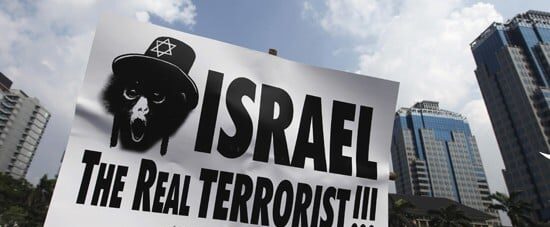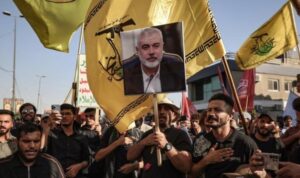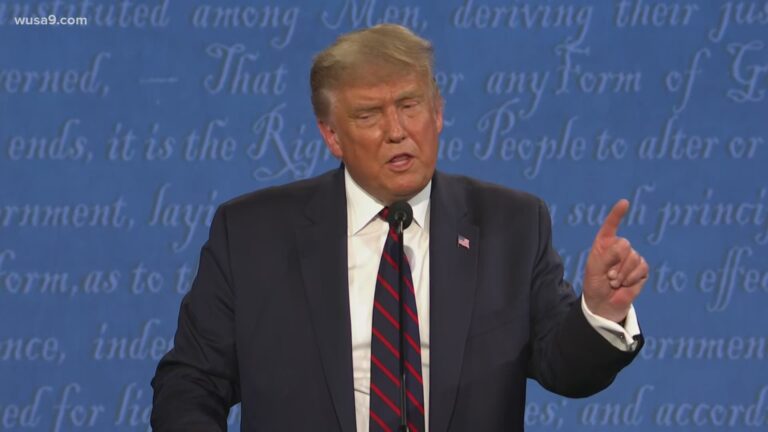
STRATEGIC ASSESSMENT. On July 31, in what has been widely reported as an Israeli intelligence operation, Hamas’ top leader as head of its Political Bureau, Ismail Haniyeh, was killed in an explosion while at a guest house in Tehran where Iran’s Islamic Revolutionary Guard Corps (IRGC) hosts high-level visitors. He was in the country to attend the swearing-in of Iran’s newly-elected President Masoud Pezeshkian. Funeral services were held in Iran, led by Supreme Leader Ali Khamenei, but he was buried in Qatar, where the Political Bureau’s offices are hosted. Qatar has been a pivotal mediator in ongoing talks to achieve a permanent ceasefire in the conflict in Gaza. Israeli and Egyptian intelligence chiefs met in Cairo on Saturday to continue to try to forge a deal despite predictions the Haniyeh assassination would derail the talks.
Hamas’ Shura (consultative) council, the group’s main deliberative body, is expected to meet in the coming days to formally name a new successor. The council’s membership represents regional chapters of the group in Gaza, the West Bank and diaspora, and those imprisoned. A full leadership meeting may be complicated by their inability to convene due to operational security considerations – many of the group’s nearly 60 members are hiding in Gaza from Israel’s offensive, making them difficult to reach. Furthermore, it remains unclear exactly how much a newly elected Political Bureau leader will be able to influence or shape the group at the current time.
In large part because the Haniyeh killing occurred on Iranian territory, the Supreme Leader has vowed Iran will retaliate against Israel for the attack, joined by its “Axis of Resistance” partners, most notably Hezbollah. After nearly ten months of war with the Israel Defense Forces (IDF), Hamas, although still active militarily on the ground in Gaza, appears poorly positioned to join retaliatory strikes on Israel. U.S. officials, who say they were not given advanced notice of Israel’s operation against Haniyeh but reportedly were briefed on it afterward, are urging Iran and its Axis partners not to risk intensifying the regional war by retaliating against Israel.

Relations with Iran are one of the questions the next political leader of Hamas will face. Iran is a key financier, arms provider, and advisor to the group, but Sunni Arab governments – many of which engage with Hamas – remain wary of Iran and oppose Hamas’ alignment with the Islamic Republic. Some potential successors to Haniyeh, including the group’s de-facto Foreign Minister Khalid Meeshal, have tended to support closer relations with Sunni Muslim-dominated governments and maintain political distance from Tehran. Meeshal’s relations with Iran, Syria, and Lebanese Hezbollah have been strained since he supported the Arab Spring protests in 2011, which, in Syria, nearly toppled Syrian President Bashar al-Assad. Even though Hamas reconciled with Iran in 2017, Hezbollah leaders reportedly refused to meet with him when he was in Lebanon in 2021. Hamas restored relations with the Assad regime in 2022. If Meshaal is confirmed as the new Hamas political leader, his relations with Tehran will likely be strained.
In contrast, Meeshal has maintained good relations with Türkiye and Qatar, both of which expressed support for the Arab Spring uprisings as enfranchising a broader range of political movements in governance. Both countries have engaged with Hamas as part of an effort to moderate the group’s stance on negotiating with Israel and its use of violence against Israeli civilians. Meeshal also has close ties to Jordan, another moderate Arab state and close U.S. ally. In 1997, Israel attempted to assassinate Meeshal in Jordan, but his life was saved when Jordan’s leadership demanded Israel provide an antidote to the poison Israeli operatives had used to try to kill him.
Aside from external relationships, the next Hamas leader will face decisions on whether to continue to battle Israel as essentially a guerrilla and underground group or offer political compromises. Whoever is selected by the group’s senior leaders to be the next paramount political chief will almost certainly come into immediate conflict and competition with Yahya Sinwar, the powerful Hamas figure leading the war in Gaza. Sinwar is not only ideologically hardline as the driving force behind the October 7 attack on Israel, but he also is in essential control of the organization’s military and political forces on the ground in Gaza. Sinwar is in a position to accept or reject any ceasefire and hostage release agreement with Israel, and Hamas’ leadership outside Gaza has limited ability to exert direct control over Sinwar’s decisions and actions.
In his inevitable arguments with the external political leadership of the group, Sinwar can also count on the strong support of his brother Muhammad, who became the commander of Hamas’s Khan Younis Brigade in 2005. Muhammad Sinwar oversees Hamas’s military command structure in southern Gaza and was unsuccessfully targeted by Israel during the May 2021 Gaza war, during which he admitted to coordinating with Iran and Hezbollah.
Yahya Sinwar might also have the capability, given his control over the movement’s forces and activists in Gaza, to shift consideration of Haniyeh’s succession. Sinwar is said to favor the selection of Khalil al-Hayya for the role. Al-Hayya is the deputy head of Hamas’s Political Bureau in the Gaza Strip, and his selection as Hamas leader would strengthen not only Sinwar but also other Hamas leaders who are in Gaza and not living abroad. Sinwar favors al-Hayya not only through personal ties but because they share a hardline ideology and favor close ties to Iran and Syria – downplaying ties to moderate Sunni Arab states. Al-Hayya traveled to the Pezeshkian inauguration with Haniyeh and, immediately after his death, issued hardline statements promising that: “Hamas and the Palestinian people will not stop the resistance march…The resistance vows to respond to this aggression, and the Zionist entity deserves to pay a heavy price for this crime.”
A ceasefire deal that ends the Gaza war will also present the next Hamas political leader with a dilemma whether to bury its longstanding feud with its main rivals for Palestinian support – Fatah and the PLO – which dominate the PA. Hamas expelled PA officials and security authorities from Gaza forcibly in 2007, and the two have failed to reconcile since. Over the past several weeks, Israeli Prime Minister Binyamin Netanyahu has relented on his earlier opposition to a PA role in securing and governing post-war Gaza. The evolving Israeli stance on the “day after” in Gaza has stimulated new debates within Hamas on unifying with Fatah and the PLO and playing a potential role in post-war governance in Gaza. However, Israeli leaders continue to object to any Hamas role in post-war governance in Gaza, even if done as a subordinate to PA officials.
Khalid Meeshal’s perceived openness to rebuilding ties to Fatah, the PLO, and the PA might explain why PA President Mahmoud Abbas called Meeshal to offer his condolences for the killing of Haniyeh. Another senior Hamas political figure, sometimes mentioned as a possible successor to Haniyeh, Musa Abu Marzuq, also appears open to reconciling with the PA. Marzuq lost a May 2017 Hamas election to replace Meeshal but has since continued to serve as a senior member of the group’s Political Bureau. Abu Marzuq represented Hamas at talks with Fatah representatives in Beijing that, on July 23, yielded an agreement on “ending division and strengthening Palestinian unity.” China’s Foreign Minister Wang Yi characterized the pact as an agreement “on post-Gaza war governance and the establishment of a provisional national reconciliation government.” Yet, Wang affirmed the view of Beijing and of most Middle Eastern and global governments that “…the PLO is the sole legitimate representative of all Palestinian people” – a position at odds with the goals of Hamas hardliners. The agreement, despite its uncertain implementation, nonetheless benefitted China’s efforts to present itself as a potential peace broker in the conflict and a key player in the region.
Even as it attempts to sort out its internal divisions, stances on key issues, and external relations, any Haniyeh successor and his allies will also face unrelenting operational pressure from Israel. The Netanyahu government has vowed to eliminate all Hamas leaders in and outside Gaza, even though the political leadership outside Gaza might not have had any involvement in the October 7 attack. Since the beginning of 2024, Israel has killed several top Hamas leaders and commanders both in and outside the Gaza Strip. In January, an Israeli airstrike killed Haniyeh’s deputy Saleh al-Arouri in Beirut. Arouri would have been favored to replace Haniyeh and his post has remained empty since his death. In March, Israel killed the group’s deputy chief of military operations, Marwan Issa, in central Gaza. And, one day after Haniyeh’s death in Tehran, the IDF confirmed that its July 13 airstrike in Gaza had successfully killed Hamas’ military commander, Mohammed Deif, the purported operational mastermind of the October 7 attack. That strike marked the highest-ranking Hamas official in the Gaza Strip to be eliminated by Israeli forces since the onset of the war. Many argue Netanyahu will resist agreeing to withdraw the IDF from Gaza unless and until Sinwar is captured or killed.
On July 31, in what has been widely reported as an Israeli intelligence operation, Hamas’ top leader as head of its Political Bureau, Ismail Haniyeh, was killed in an explosion while at a guest house in Tehran where Iran’s Islamic Revolutionary Guard Corps (IRGC) hosts high-level visitors. He was in the country to attend the swearing-in of Iran’s newly-elected President Masoud Pezeshkian. Funeral services were held in Iran, led by Supreme Leader Ali Khamenei, but he was buried in Qatar, where the Political Bureau’s offices are hosted. Qatar has been a pivotal mediator in ongoing talks to achieve a permanent ceasefire in the conflict in Gaza. Israeli and Egyptian intelligence chiefs met in Cairo on Saturday to continue to try to forge a deal despite predictions the Haniyeh assassination would derail the talks.
Hamas’ Shura (consultative) council, the group’s main deliberative body, is expected to meet in the coming days to formally name a new successor. The council’s membership represents regional chapters of the group in Gaza, the West Bank and diaspora, and those imprisoned. A full leadership meeting may be complicated by their inability to convene due to operational security considerations – many of the group’s nearly 60 members are hiding in Gaza from Israel’s offensive, making them difficult to reach. Furthermore, it remains unclear exactly how much a newly elected Political Bureau leader will be able to influence or shape the group at the current time.
In large part because the Haniyeh killing occurred on Iranian territory, the Supreme Leader has vowed Iran will retaliate against Israel for the attack, joined by its “Axis of Resistance” partners, most notably Hezbollah. After nearly ten months of war with the Israel Defense Forces (IDF), Hamas, although still active militarily on the ground in Gaza, appears poorly positioned to join retaliatory strikes on Israel. U.S. officials, who say they were not given advanced notice of Israel’s operation against Haniyeh but reportedly were briefed on it afterward, are urging Iran and its Axis partners not to risk intensifying the regional war by retaliating against Israel.
Relations with Iran are one of the questions the next political leader of Hamas will face. Iran is a key financier, arms provider, and advisor to the group, but Sunni Arab governments – many of which engage with Hamas – remain wary of Iran and oppose Hamas’ alignment with the Islamic Republic. Some potential successors to Haniyeh, including the group’s de-facto Foreign Minister Khalid Meeshal, have tended to support closer relations with Sunni Muslim-dominated governments and maintain political distance from Tehran. Meeshal’s relations with Iran, Syria, and Lebanese Hezbollah have been strained since he supported the Arab Spring protests in 2011, which, in Syria, nearly toppled Syrian President Bashar al-Assad. Even though Hamas reconciled with Iran in 2017, Hezbollah leaders reportedly refused to meet with him when he was in Lebanon in 2021. Hamas restored relations with the Assad regime in 2022. If Meshaal is confirmed as the new Hamas political leader, his relations with Tehran will likely be strained.
In contrast, Meeshal has maintained good relations with Türkiye and Qatar, both of which expressed support for the Arab Spring uprisings as enfranchising a broader range of political movements in governance. Both countries have engaged with Hamas as part of an effort to moderate the group’s stance on negotiating with Israel and its use of violence against Israeli civilians. Meeshal also has close ties to Jordan, another moderate Arab state and close U.S. ally. In 1997, Israel attempted to assassinate Meeshal in Jordan, but his life was saved when Jordan’s leadership demanded Israel provide an antidote to the poison Israeli operatives had used to try to kill him.
Aside from external relationships, the next Hamas leader will face decisions on whether to continue to battle Israel as essentially a guerrilla and underground group or offer political compromises. Whoever is selected by the group’s senior leaders to be the next paramount political chief will almost certainly come into immediate conflict and competition with Yahya Sinwar, the powerful Hamas figure leading the war in Gaza. Sinwar is not only ideologically hardline as the driving force behind the October 7 attack on Israel, but he also is in essential control of the organization’s military and political forces on the ground in Gaza. Sinwar is in a position to accept or reject any ceasefire and hostage release agreement with Israel, and Hamas’ leadership outside Gaza has limited ability to exert direct control over Sinwar’s decisions and actions.
In his inevitable arguments with the external political leadership of the group, Sinwar can also count on the strong support of his brother Muhammad, who became the commander of Hamas’s Khan Younis Brigade in 2005. Muhammad Sinwar oversees Hamas’s military command structure in southern Gaza and was unsuccessfully targeted by Israel during the May 2021 Gaza war, during which he admitted to coordinating with Iran and Hezbollah.
Yahya Sinwar might also have the capability, given his control over the movement’s forces and activists in Gaza, to shift consideration of Haniyeh’s succession. Sinwar is said to favor the selection of Khalil al-Hayya for the role. Al-Hayya is the deputy head of Hamas’s Political Bureau in the Gaza Strip, and his selection as Hamas leader would strengthen not only Sinwar but also other Hamas leaders who are in Gaza and not living abroad. Sinwar favors al-Hayya not only through personal ties but because they share a hardline ideology and favor close ties to Iran and Syria – downplaying ties to moderate Sunni Arab states. Al-Hayya traveled to the Pezeshkian inauguration with Haniyeh and, immediately after his death, issued hardline statements promising that: “Hamas and the Palestinian people will not stop the resistance march…The resistance vows to respond to this aggression, and the Zionist entity deserves to pay a heavy price for this crime.”
A ceasefire deal that ends the Gaza war will also present the next Hamas political leader with a dilemma whether to bury its longstanding feud with its main rivals for Palestinian support – Fatah and the PLO – which dominate the PA. Hamas expelled PA officials and security authorities from Gaza forcibly in 2007, and the two have failed to reconcile since. Over the past several weeks, Israeli Prime Minister Binyamin Netanyahu has relented on his earlier opposition to a PA role in securing and governing post-war Gaza. The evolving Israeli stance on the “day after” in Gaza has stimulated new debates within Hamas on unifying with Fatah and the PLO and playing a potential role in post-war governance in Gaza. However, Israeli leaders continue to object to any Hamas role in post-war governance in Gaza, even if done as a subordinate to PA officials.

Khalid Meeshal’s perceived openness to rebuilding ties to Fatah, the PLO, and the PA might explain why PA President Mahmoud Abbas called Meeshal to offer his condolences for the killing of Haniyeh. Another senior Hamas political figure, sometimes mentioned as a possible successor to Haniyeh, Musa Abu Marzuq, also appears open to reconciling with the PA. Marzuq lost a May 2017 Hamas election to replace Meeshal but has since continued to serve as a senior member of the group’s Political Bureau. Abu Marzuq represented Hamas at talks with Fatah representatives in Beijing that, on July 23, yielded an agreement on “ending division and strengthening Palestinian unity.” China’s Foreign Minister Wang Yi characterized the pact as an agreement “on post-Gaza war governance and the establishment of a provisional national reconciliation government.” Yet, Wang affirmed the view of Beijing and of most Middle Eastern and global governments that “…the PLO is the sole legitimate representative of all Palestinian people” – a position at odds with the goals of Hamas hardliners. The agreement, despite its uncertain implementation, nonetheless benefitted China’s efforts to present itself as a potential peace broker in the conflict and a key player in the region.
Even as it attempts to sort out its internal divisions, stances on key issues, and external relations, any Haniyeh successor and his allies will also face unrelenting operational pressure from Israel. The Netanyahu government has vowed to eliminate all Hamas leaders in and outside Gaza, even though the political leadership outside Gaza might not have had any involvement in the October 7 attack. Since the beginning of 2024, Israel has killed several top Hamas leaders and commanders both in and outside the Gaza Strip. In January, an Israeli airstrike killed Haniyeh’s deputy Saleh al-Arouri in Beirut. Arouri would have been favored to replace Haniyeh and his post has remained empty since his death. In March, Israel killed the group’s deputy chief of military operations, Marwan Issa, in central Gaza. And, one day after Haniyeh’s death in Tehran, the IDF confirmed that its July 13 airstrike in Gaza had successfully killed Hamas’ military commander, Mohammed Deif, the purported operational mastermind of the October 7 attack. That strike marked the highest-ranking Hamas official in the Gaza Strip to be eliminated by Israeli forces since the onset of the war. Many argue Netanyahu will resist agreeing to withdraw the IDF from Gaza unless and until Sinwar is captured or killed.







